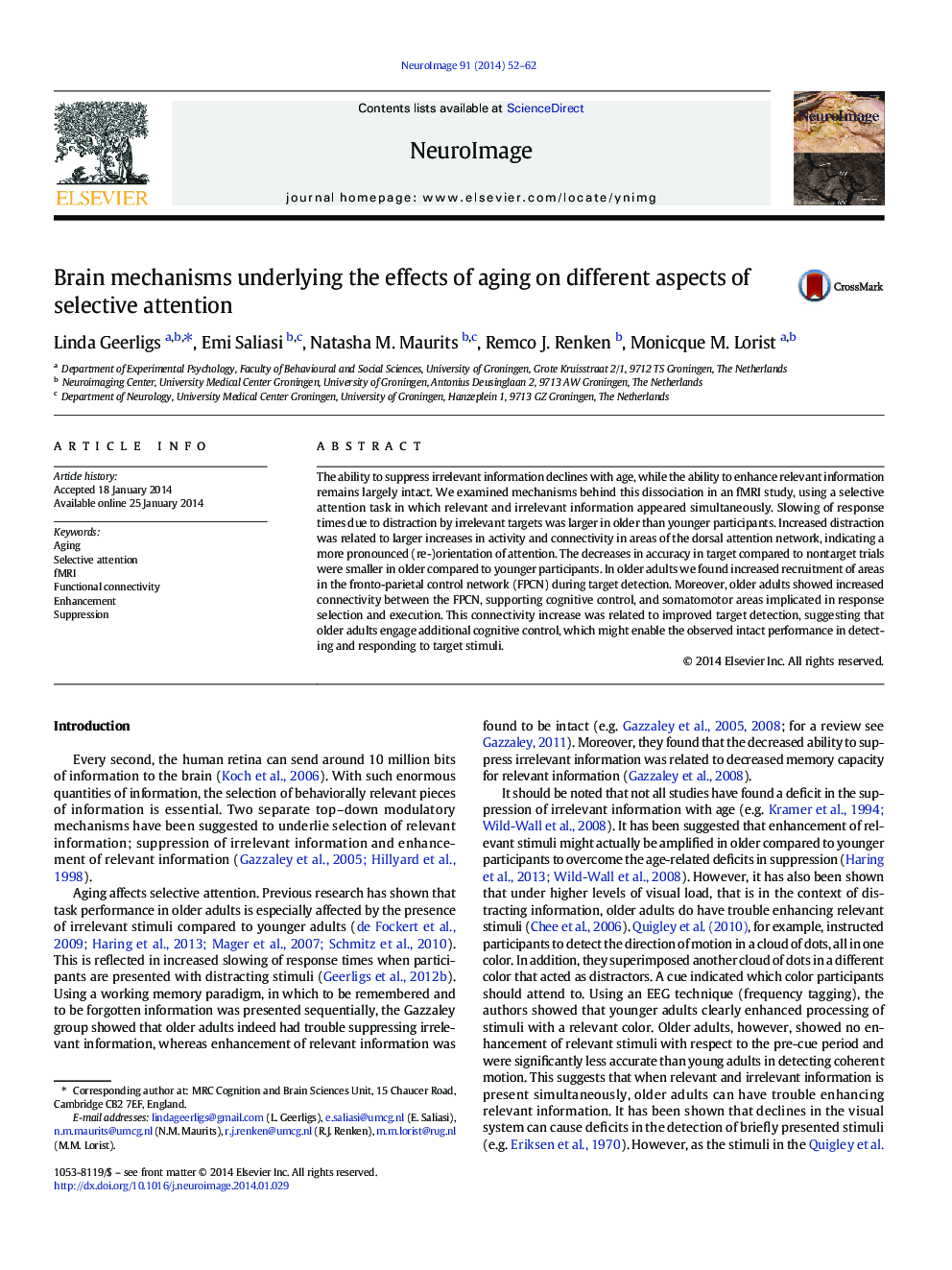| Article ID | Journal | Published Year | Pages | File Type |
|---|---|---|---|---|
| 6027607 | NeuroImage | 2014 | 11 Pages |
Abstract
The ability to suppress irrelevant information declines with age, while the ability to enhance relevant information remains largely intact. We examined mechanisms behind this dissociation in an fMRI study, using a selective attention task in which relevant and irrelevant information appeared simultaneously. Slowing of response times due to distraction by irrelevant targets was larger in older than younger participants. Increased distraction was related to larger increases in activity and connectivity in areas of the dorsal attention network, indicating a more pronounced (re-)orientation of attention. The decreases in accuracy in target compared to nontarget trials were smaller in older compared to younger participants. In older adults we found increased recruitment of areas in the fronto-parietal control network (FPCN) during target detection. Moreover, older adults showed increased connectivity between the FPCN, supporting cognitive control, and somatomotor areas implicated in response selection and execution. This connectivity increase was related to improved target detection, suggesting that older adults engage additional cognitive control, which might enable the observed intact performance in detecting and responding to target stimuli.
Related Topics
Life Sciences
Neuroscience
Cognitive Neuroscience
Authors
Linda Geerligs, Emi Saliasi, Natasha M. Maurits, Remco J. Renken, Monicque M. Lorist,
